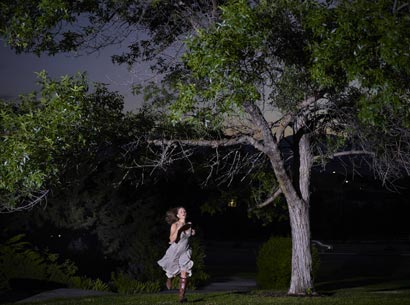The guarded glance of half solicitude, half curiosity

According to what some call the strong definition of free will, articulated by René Descartes in the 17th century, you are free if, under identical circumstances, you could have acted otherwise. Identical circumstances refer to not only the same external conditions but also the same brain states. (…)
Contrast this strong notion of freedom with a more pragmatic conception called compatibilism, the dominant view in biological, psychological, legal and medical circles. You are free if you can follow your own desires and preferences. A long-term smoker who wants to quit but who lights up again and again is not free. His desire is thwarted by his addiction. Under this definition, few of us are completely free. (…)
Consider an experiment that ends with a 90 percent chance of an electron being here and a 10 percent chance of it being over there. If the experiment were repeated 1,000 times, on about 900 trials, give or take a few, the electron would be here; otherwise, it would be over there. Yet this statistical outcome does not ordain where the electron will be on the next trial. Albert Einstein could never reconcile himself to this random aspect of nature. (…)
This experiment was conceived and carried out in the early 1980s by Benjamin Libet, a neuropsychologist at the University of California, San Francisco. (…)
Intuitively, the sequence of events that leads to a voluntary act must be as follows: You decide to raise your hand; your brain communicates that intention to the neurons responsible for planning and executing hand movements; and those neurons relay the appropriate commands to the motor neurons that contract the arm muscles. But Libet was not convinced. Wasn’t it more likely that the mind and the brain acted simultaneously or even that the brain acted before the mind did?
Libet set out to determine the timing of a mental event, a person’s deliberate decision, and to compare that with the timing of a physical event, the onset of the readiness potential after that decision. (…)
The results told an unambiguous story, which was bolstered by later experiments. The beginning of the readiness potential precedes the conscious decision to move by at least half a second and often by much longer. The brain acts before the mind decides! This discovery was a complete reversal of the deeply held intuition of mental causation.
photo { Tabitha Soren }


